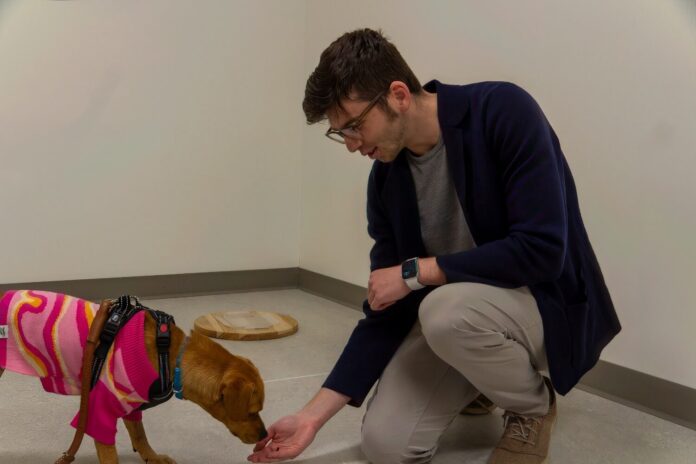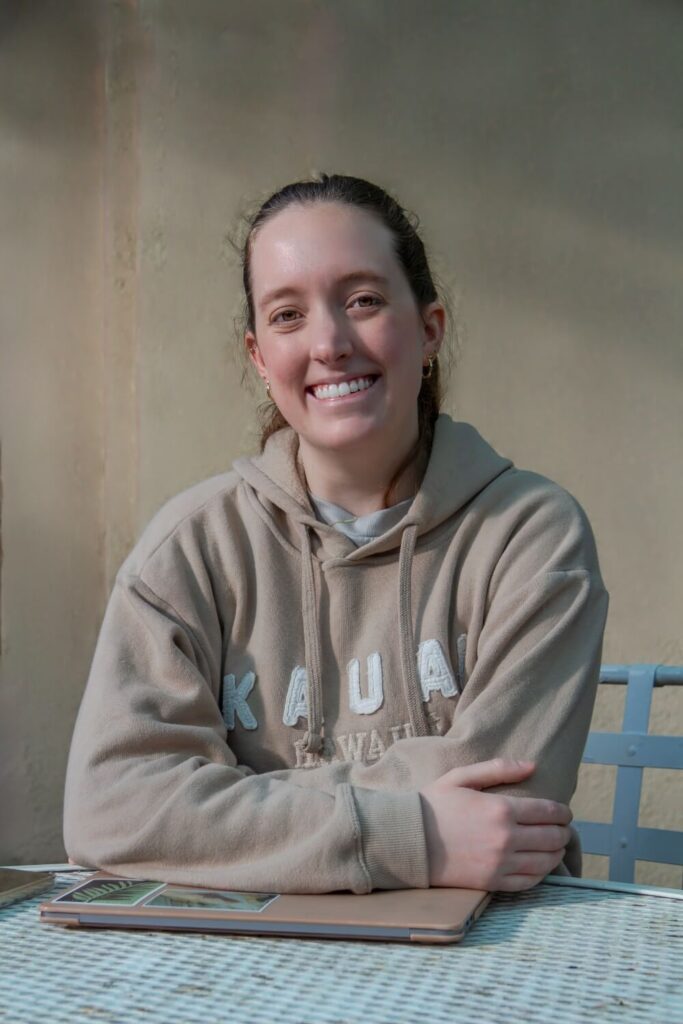
Assistant Professor of Psychology Zachary Silver heads the Occidental College Canine Intelligence Lab, which focuses on observing the cognitive capabilities of dogs and their interactions with humans. In his second year at Occidental, Silver’s research has garnered attention from CBS Los Angeles, LA community members and the broader scientific community.
Silver said he earned his PhD at Yale University and started Yale’s well-known Canine Cognition Center while working under an advisor that studies primates. Silver said his graduate school studies helped prepare him for his role at the college.
“I’ve been designing projects with undergraduate students [since graduate school], [and] because the field of canine cognition is so young, [there is] so much that we can do,” Silver said. “I’ve been thinking about how I can run my lab as a professor for a long time, and I’ve been really excited and fortunate to be able to do that here.”
According to Silver, humans can gain tremendous emotional intelligence from interacting with dogs.
“Because dogs seem to be so attuned to our emotions, they can help us better understand ourselves,” Silver said. “By responding to our emotional cues, sometimes it clarifies things about what we’re feeling that we might not actually have realized. My dog gives very particular responses to my emotional cues, which can help me see that I’m actually being irrational about why I’m feeling this way.”

According to Silver, studying animal cognition should go beyond measuring intelligence and instead focus on understanding different forms of cognitive abilities.
“Dogs are really impressive when it comes to social cognition and thinking about complex interactions between people. In some ways, they rival young humans in their ability to do those sorts of things,” Silver said. “But other forms of cognition like physical reasoning, they’re not quite as impressive compared to other animals that are more evolutionary designed to succeed in those environments.”
Camden Foster (senior), a psychology major leading her own honors research project within Silver’s lab, said she recommends working in Silver’s lab and taking his classes in evolutionary psychology and canine cognition.
“It’s a very unique lab experience compared to other labs that do more work with people,” Foster said. “I would highly recommend. It’s been one the highlights of my time here.”

Foster said she plans to accept a return offer at a cybersecurity firm in a project management position after she graduates. While she is not pursuing graduate school for psychology, she said her experience in Silver’s lab has helped prepare her for her upcoming job.
“There’s a ton of transferable skills because a lot of it comes down to team communication and staying organized, [like] the mechanics of keeping a lab and keeping it professional, making sure everyone knows what they need to know and knows when to be somewhere they need to be,” Foster said.
Meera Patel (senior) is a member of Silver’s lab and said via text that she plans on practicing medicine after she graduates. According to Patel, working in the lab has strengthened her communication skills and better prepared her for a career in medicine.
“I plan on eventually practicing medicine and I feel like canine research can be applied because there is a wide variety of service animals in the health community,” Patel said via text.
According to Silver, one of the reasons that canine cognition research works so well with undergraduates who are interested in gaining research experience is because of its novelty — the field is only 30 years old. Silver said previous animal psychology work focused on discovering benefits for humans but that his research seeks to help dogs and humans alike.
“I want to ask research questions that will provide benefits to the dogs as well,” Silver said. “A lot of what I’m looking at right now pertains to things that the implications of which we’d be able to use to optimize dog training practices to help them live more effective and happy lives with humans.”
Contact Bennett Michaels at bmichaels@oxy.edu
This article was updated at 1 p.m. March 4 to clarify that Silver started Yale’s Canine Cognition Lab.
![]()






























